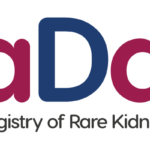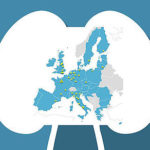Global Action has more than any other organisation promoted the research registries that exist for our rare disease.
Many rare diseases do not have registries and seek them to help improve research.
Registries are expensive to run, provide extensive logistical challenges for the collection of data that their designers have specified. Registries can be international and national in scope for patients included.
In the past Global Action has featured four major registries in its pages.
–The HUS/TTP Registry- an international registry designed and maintained by the Magri Institute for Rare Diseases in Bergamo, Italy ;
RaDar– a national registry for rare kidney diseases, including aHUS , designed and maintained by the UK Kidney Association
The Alexion aHUS Registry – an international registry operated andfunded by Astra Zeneca Alexion;
ERKreg – an international registry of European and neighbouring countries and funded by the EU which includes aHUS among its TMA category.
The HUS/TTP registry is the oldest and biggest registry and was very influential in the early days of “HUS” research. Led by an eminent clinical researcher Guiseppe Remuzzi. Global Action visited his centre of expertise and found our more about the registry and reported on it. More information about the registry and the visit can be found at the link below

Third Stop Bergamo Italy and another aHUS Expert Centre
Bergamo IT – Whistle-Stop Tour of 4 aHUS Centers in the EU: Visits to Three Nations in 6 days. The aHUS Alliance toured centers of aHUS expertise and research in July 2018. 3rd Stop: Mario Negri Institute, the Centro di Ricerche Cliniche per le Malattie Rare “Aldo e Cele Daccò”
Not quite as old as the HUS/TTP Registry RaDaR began over 15 years ago as an initiative of the kidney professional organisation, UK Kidney Association. The registry covers numerous rare kidney diseases and aHUS is amongst its rarest. At over 27.000 kidney patients it claims to be largest kidney registry in the world and with 300 aHUS patients can provide meaningful data about the disease.
More information about the aHUS cohort in the registry can be read in the article below.

Characteristics of aHUS patients
Although sparse, getting characteristics information about aHUS patients can come from a variety of sources. A recent article in The Lancet* about kidney disease progression in 28 rare kidney diseases…
The Alexion aHUS Registry is something the company has to provide. There is an academic use of the data on disease topics but the company also uses it to promote the effectiveness of its product. Although it is frequently claimed to have nearly 2000 enrolled patients the data collected from them is often incomplete and five years ago it was decided to stop recruitment in certain countries and it stopped following over 1000 participants to save on costs. A recent article on triggers of the disease found only just over 300 patients with enough data to report on. It found that the biggest trigger of aHUS was cancer. This suggests a high level of secondly perhaps non complement related aHUS patients are included in the registry. Global Action did a study of the compliances of patients to the requirement to submit details of their fatigue and quality of life on patient reported outcomes at baseline. It found a falling off of compliance over the first seven years
ERKReg– The European Rare Kidney Disease Registry. Without Global Action there is very little visibility of this “Renal” ” registry well not as far as aHUS is concerned. aHUS patients fall into the TMA section of the Registry. There are currently 683 TMA pediatric patients active in the registry and only 90 adults. It is not known how many of them are aHUS. Patients from Iran, Russia, South Korea and Dubai are also enrolled in a secondary part of the registry

aHUS Registry Report:ERKNET
The aHUS alliance has a long association with the Global aHUS Registry and has had a place on its Scientific Advisory Board but there are other patient registries around the world…
Article No. 731

